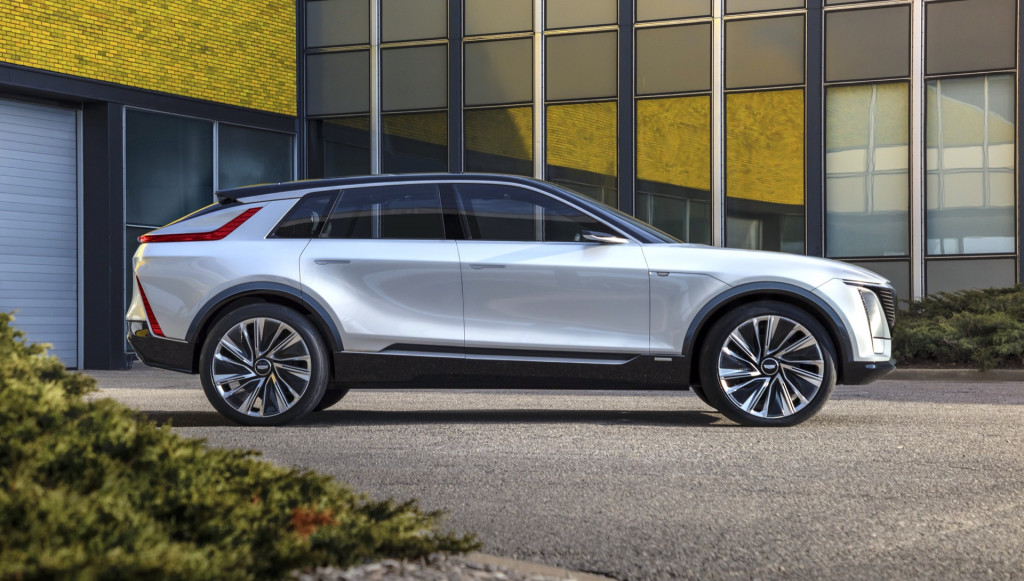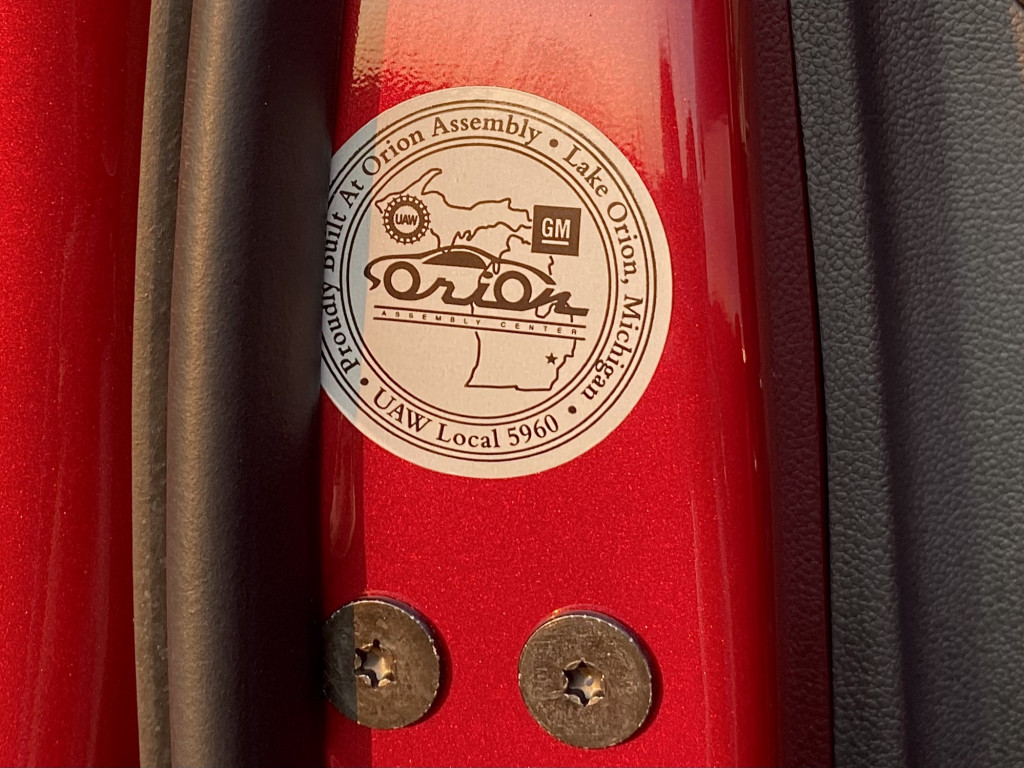The most controversial part of the expanded $12,500 EV tax credit so far hasn’t been the spending itself, but the requirement that vehicles getting the top amount—$4,500 of the $5,000 boost the program is being given—will need to be union-made.
As part of an updated measure spanning climate issues and social spending introduced Wednesday, Democrats in the U.S. House of Representatives have made the EV tax credit a little less about affordability.

Cadillac Lyriq concept
A new framework, adjusted from the version the House presented in September, allows for any vans, trucks, and SUVs with a price of up to $80,000 to qualify for the credit. That’s a big boost from the original limit of $64,000 for vans, $69,000 for SUVs, and $74,000 for pickups. A $55,000 MSRP cap appears to remain in place for sedans.
At the same time however, the bill reportedly drops the maximum single-filer income for eligibility from the previous $400,000 down to $250,000.
An expanded EV tax credit, which had garnered bipartisan support on its own—although nixed by Trump—has turned into a more toxic topic with the Biden Administration’s addition of a union-made requirement. Both Senate and House versions under consideration would give a bonus to the relatively few union-made vehicles that are on the horizon for the next few years, including the current Chevrolet Bolt EV as well as the upcoming Ford F-150 Lightning and Cadillac Lyriq.

UAW-made sticker on 2022 Chevy Bolt EV
As for the union-made provision, the longer the proposal remains on the table, seemingly more opposition builds. The pushback now includes Tesla, nearly every foreign automaker and 11 Republican state governors. A group of 25 foreign ambassadors even wrote a joint letter calling the qualification "inconsistent with U.S. commitments made under WTO multilateral agreements."
Earlier this week Toyota put out a particularly strong statement about the issue—essentially saying that this bill values the American autoworker less if they haven’t joined a union.
Toyota, which has produced a new ad campaign to counter the union requirement, continued: “And what does this say to Americans who want to buy an electric vehicle to combat climate change? It says having more electric vehicles on the road is secondary to promoting unionization.”
That might not be the intent, but with the package itself rapidly evolving, this could be subject to yet another round of change. Stay tuned.













